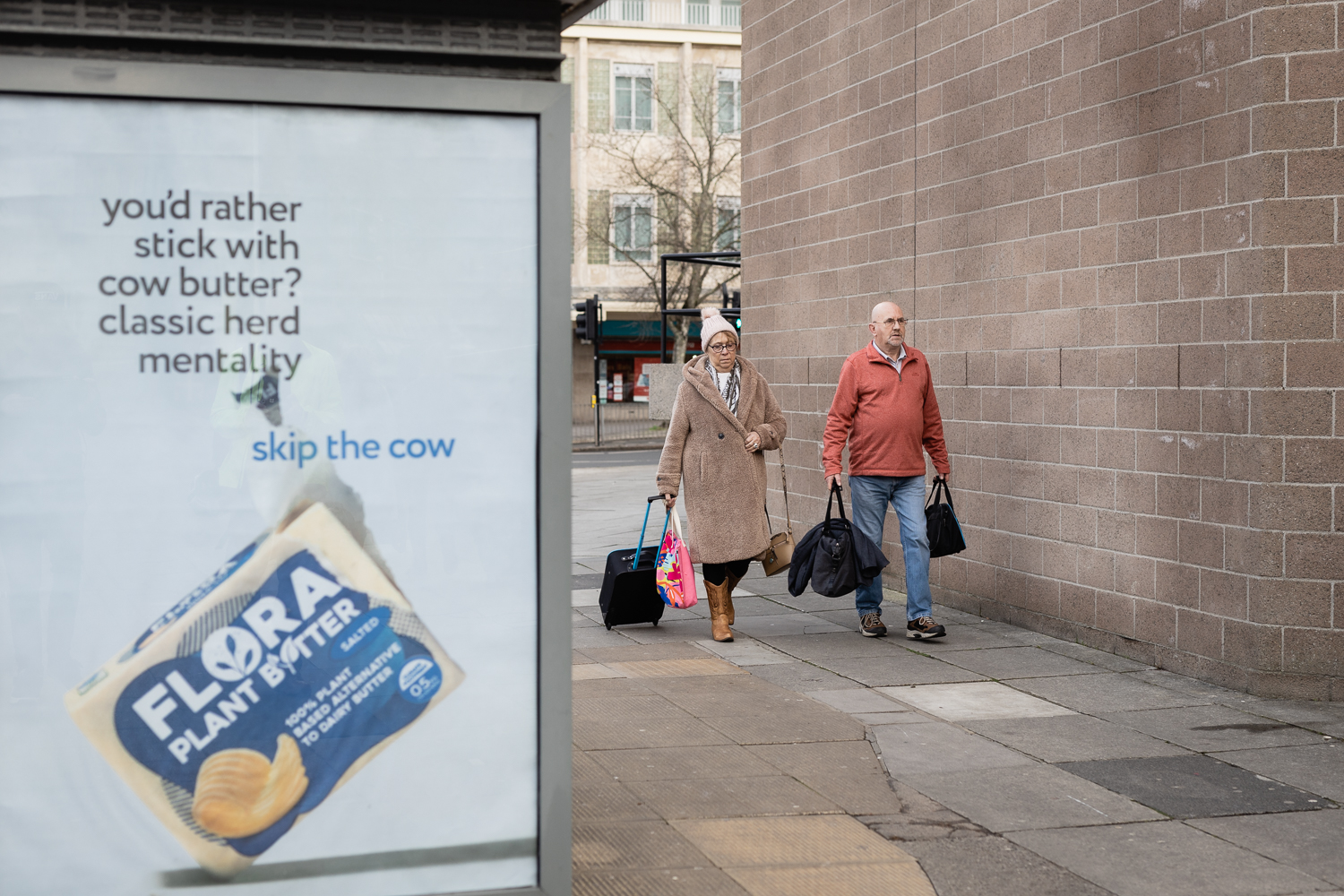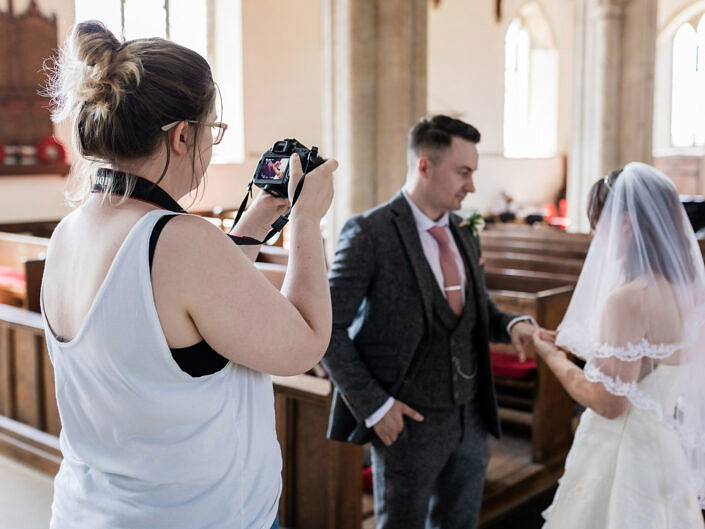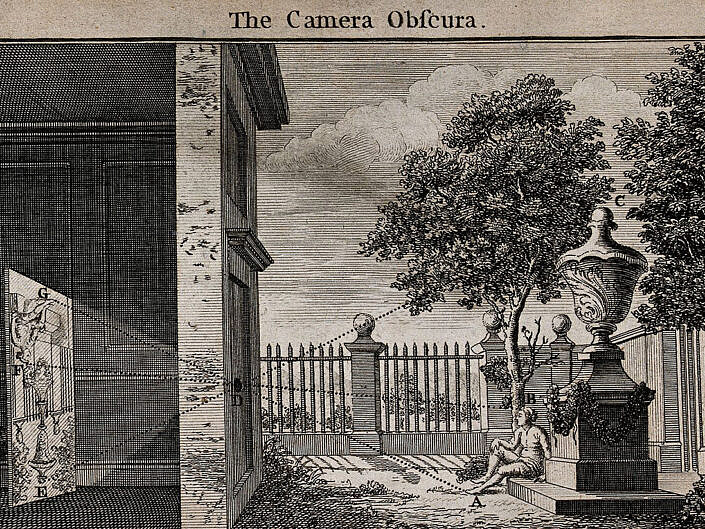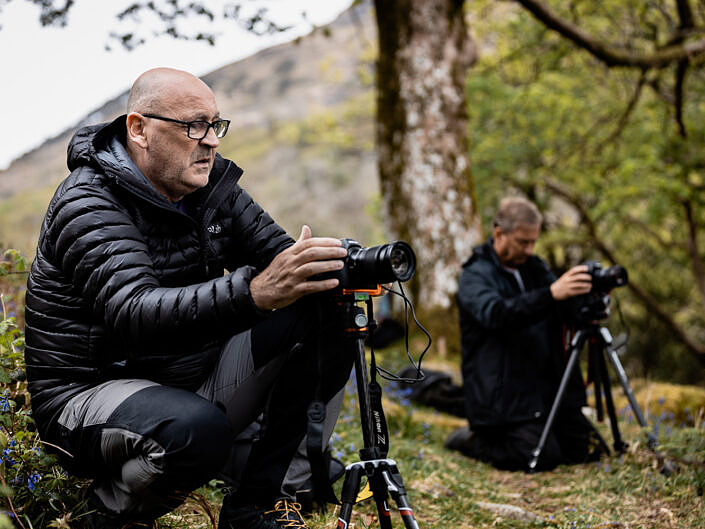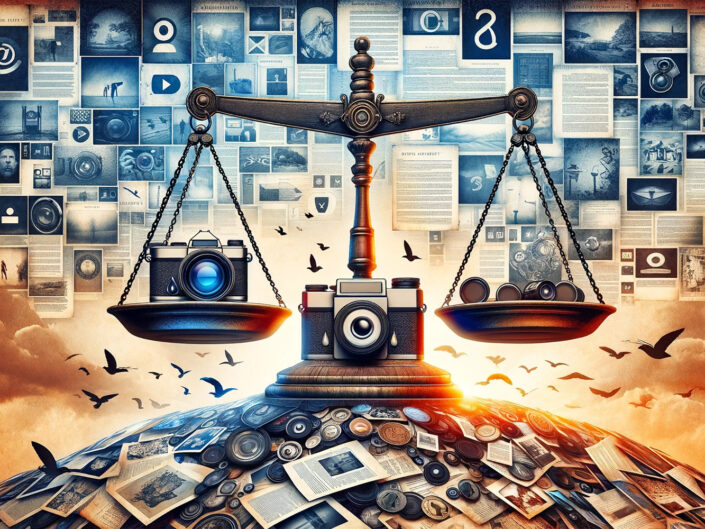In general, you do not need permission to take someone’s picture in the UK and so long as you’re on public land while you’re doing so, you can snap away quite freely without risking running into any trouble with the law. However, there are a few instances in which you would be required to gain the permission of the person you are photographing, which we will explore further in this article.
Do I need permission to take photographs in a public place?
Photographers are able to take pictures in all public places, including photos of people, for journalistic, editorial or art purposes so long as they are not harassing members of the public to obtain the photographs. Under the Protection from Harassment Act 1997, you can be prosecuted if you are threatening, stalking, intimidating or causing distress to someone to obtain their photograph.
You must also be careful that where you are shooting these images is definitely a public space, as many areas that you may think are public are in actual fact privately owned. For example, many shopping centres, museums, art galleries, public attractions, churches etc are on private land and you would need the permission of the landowner in order to be able to take pictures in these places, otherwise, it could be considered trespassing. Generally trespassing is a civil matter and so if you do not have permission to take photos the worst that will happen is the landowner will ask you to stop taking photos and to leave the property. If you refuse to do so, you may be taken to civil court and ordered to pay damages. However, trespassing is a criminal offence on railways and MOD land, so you would need to obtain permission before taking photos in either of these places in order to avoid the risk of being arrested and potentially prosecuted.
Do I need permission to take pictures of children in public?
Contrary to common belief, you do not need permission to take pictures of children in public places in the UK – so long as the images cannot be considered indecent – and the child’s parents cannot insist that you delete any images you have taken.
There are some occasions when having permission to take a child’s photograph can be advantageous to you if that child is easily identifiable in the image – for example, if you wish to use the photograph commercially or internationally, which we discuss further at the end of this article.
Do I need permission to take photographs of police officers?
In the UK, police officers are generally unable to prevent photographers from taking pictures of them or delete any digital images that have been taken of them. Under Section 43 of the Terrorism Act 2000, police can stop and search anyone suspected of being involved in terrorism and view and retain any images that they have taken on a mobile phone or camera. However, even in this instance they are not allowed to delete any images unless there has been a court order to do so. Under Section 58A, police are able to arrest someone taking photos of police offers, intelligence officers or members of the army only if they have reason to suspect that those images are being obtained to aid terrorism. If you are taking photos of police for any other reason – namely, as a member of the press, for your art or simply as a tourist, you do not need permission to do so.
Do I need permission to take pictures on private land?
If you wish to take pictures on private land – for example, at someone’s house or in an art gallery – you need the permission of the landowner. So if you have been hired to photograph a birthday party at someone’s house, you don’t need further permission to photograph the people that are attending that party. However, if a guest asks you to stop taking their photo, it is probably best to value their privacy and do so as if they are a friend or relative of the landowner then they are likely to be sided with over you.
The grey area is when you are taking pictures of people on private land from public land. For example, if you take photos of someone in their own home or garden from a public footpath, you are not trespassing on their land, but they may attempt to sue you for breaching their privacy.
Many galleries, museums, stately homes and theatres have blanket no-photography rules and you will need the permission of the landowner in order to freely take pictures in them. Often there will be signs up in the venues saying photography isn’t allowed or it will be printed on your ticket if you have paid for entrance. If you ignore the rules and take pictures anyway, your camera cannot be seized nor can your photos be deleted, but you may be asked to stop taking photos and you can be asked to leave.
Do I need permission to take close-up shots of a person?
There are two things to consider when taking close-up images of a person without their permission; are you in a public space and are you causing them harassment in any way to obtain the image? If you are following someone around and making them feel stalked or threatened in any way, then you risk prosecution. If the person is on private land then you are required to have permission from the landowner in order to avoid trespassing charges. However, as mentioned earlier, in most instances you will simply be asked to leave and if you refuse to do so, it will become a civil – rather than criminal – proceeding.
So long as you are photographing are on public land and you are not intimidating that person, then you are allowed to take close-up photos of them for editorial or artistic purposes. However, there are several occasions when it would be much more beneficial to you as a photographer to gain the model’s permission, as we discuss below.
What if an image I’ve taken is considered defamatory?
On most occasions, you are free to take photographs of people in public places and to publish them without their permission. However, the context in which you use their image matters. For example, if you take a photo of a young woman enjoying a cocktail in a public space with friends and use that image to illustrate a blog post about popular cocktail hotspots in your city, she is unlikely to get upset about it. Whereas if you use that same image to illustrate an article about young female alcoholics, that could be considered defamatory to her character and you risk being sued for damages.
Do I need permission to take pictures for commercial purposes?
In order to sell your photos to a media library or to use your photos to promote or sell products or services, you will often be required to obtain a signed model release form from any identifiable person featuring in the image. Although it is not illegal in the UK to take an identifiable photo of a person in a public place, media libraries and agencies often require you to have had permission to take the photos regardless.
What about if I want to sell my photos internationally?
The laws around taking photos without permission in the UK are very liberal compared to some other countries. For example, in both Germany and France there are very strict privacy laws around photography and you are required to gain the permission of any recognisable person in your photos. It’s common outside of the UK for the subject of the image to have a claim to any money made from their photo, too, so release forms are required in order to protect your profits. Therefore, if you wish to use your photos internationally – or sell them to libraries or agencies that publish internationally – you will likely need to have gained the permission of any identifiable people in the images, despite the fact that it is not required by UK law.
In general, for most editorial or artistic purposes, it is not illegal to take someone’s photograph without their permission so long as you are on public land. However, whenever possible, it may be beneficial to request the person’s permission if you know you may wish to use the image internationally or commercially in the future.
Your Questions
When I wrote this article I hadn’t anticipated that people would contact me with specific situations and want advice on their individual circumstances. I am happy to answer your questions and help where I can by email, however please do note that if you choose to get in contact I will post the answer here as well for everybody else to benefit from.
Please Do Not Telephone Me For Advice – I am a working photographer and do not have time to take calls regarding this.
Disclaimer – You should always consult a legal professional if in any doubt about where you stand in any legal matter and I take no responsibility for your future actions or decisions. I give these answers based on my knowledge, research and experience only.
_____
If I am outside in a public area but the person in the photograph is inside a cafe, am I right in thinking the cafe would be thought of as private property, and therefore I would need the permission of the cafe owner or the person I wish to take a photo of, or even both of them?
If you are stood on public property when taking your photographs then you wouldn’t need permission legally. Even though you are photographing into private property, what matters is where you are stood when taking the photograph. If you are stood on the café’s private land when taking the photograph, you would need permission from all involved.
You wouldn’t be able to use the photographs commercially for anything without permission from both the land owner and the subject, but in this case if you are on public property nobody could stop you taking the photographs in the first place.
_____
I work for a local council and a journalist took my photograph while I was conducting a council meeting in a village hall. No permission was sought and the article it featured in has caused me significant distress. From reading your article, would I be correct in believing that the photographer should have sought my permission first?
As you are a Councillor there are specific laws in place for photographs that have been taken during council meetings. The contents of my article don’t cover these are they are very specific. You need to read the following regulations: Openness of Local Government Bodies Regulations 2014.
The council you work for should have published its own rules regarding photographing and recording during council meetings and I’d advise you seek these out. My understanding would be that if it was an open council meeting with members of the press and public allowed to attend they would be allowed to photograph you during the meeting and no permission would need to be sought.
There is a legal question surrounding the context in which the image has been used in the newspaper article if it has caused you distress. However that is a question for a legal professional and not a photographer.
_____
I would love to enter a photograph into a competition. It was taken in a public park quite a few years ago, its main feature is a young women popping a large bubble with her finger. I have no idea who she is and her entire body and face are clear and identifiable. The photo would be displayed in a gallery amongst all the other entrants for about a month, purely for fun and no financial interest or gain. Can I enter it?
Your first port of call with this question should be to the competition organisers. Most competitions are governed by a set of guidelines and professional competitions usually have a condition in the terms and conditions that state something along the lines of: ” The entrant must have obtained the permission of any people featured as subjects in the entries, who are clearly identifiable in the image”.
Often competitions will require permission forms for identifiable people signed by the subject in the photograph and if they are under the age of 18 then parental consent forms are usually required. If the subject does look under the age of 18 years old, I simply wouldn’t enter the image regardless of my legal standing as it will not be worth the hassle that could arise should their parents dislike the fact you have entered it.
Aside from the competition terms and conditions themselves, let’s look at your legal rights as a photographer in this situation.
If this photograph was taken on public property, then nobody has the right to privacy in public and you are legally allowed to take their photograph. You’d need to be 100% sure the park you took the image in was public property and not private, for example, lots of the Royal Parks in London are considered private property and photography permits are required.
Whether or not you are legally allowed to enter this into a competition would depend upon how “commercial purposes” is interpreted. For example, if by entering the competition you were to pick up photography work off the back of it, the image entered could be classed as advertising and marketing and hence this would be for commercial purposes. There has to my knowledge and research not been a case in the UK where a competition entry has been taken to court and hence it’s hard to come up with a definitive answer for you.
You’d also need to know that the organisers of the competition wouldn’t be planning any commercial activities whatsoever with the winning images.
With all of this in mind, I’d personally be led by the competition organisers and their terms and conditions for entry. It may simply be more straightforward to enter a different image if it’s all only for fun anyway. Sometimes it’s not just about your legal standing, you have to think about whether it’s worth any future hassle that might arise despite where you stand with the law.
_____
I took some photographs whilst taking part in a street photography workshop ran in the UK by a professional photographer. Am I legally allowed to use these images that I took on the course for my online portfolio?
Many photography workshops, especially those ran by professional photographers, often have specific agreements or terms and conditions that participants are required to follow. These can include clauses related to the use of photographs taken during the workshop. It’s important to revisit any documentation you received or agreed to when you joined the workshop. Key aspects to look for include:
Ownership of Images: Some workshops may claim ownership or partial rights to the images taken during their sessions. This could mean that while you took the photographs, the rights to use them might be restricted or shared with the workshop organizers or instructors.
Usage Rights: There might be specific clauses about how you can use the photographs. For instance, some workshops allow participants to use the images for personal use only, which generally includes portfolios, but not for commercial purposes. I have in the past attended a photography holiday where I was limited to using the images I took on my own website and social media channels only. Look for any restrictions on the type or manner of usage. This can range from prohibitions on commercial use to limitations on entering the photographs in competitions or publishing them in certain media.
Attribution Requirements: There could be a requirement to credit the workshop or instructor when you display or publish the photographs, even in your portfolio.
If the terms and conditions are not clear or if you did not receive any formal agreement, it might be beneficial to reach out to the workshop organizers or the professional photographer who ran it. They can clarify any implicit expectations or permissions. This is especially important if you plan to use the images in a way that might prominently feature in your portfolio or if you anticipate wide visibility.
_____
I work at a climbing centre and have a range of photos with my clients permission. However, recently I’ve been advertising activities at another centre of which I presently have no photos to use. Is the climbing centre where I did take photos in their rights to ask me not to use my photos of my clients in their centre to advertise these programmes?
It entirely depends what was agreed with the climbing centre in the first place, a contract should have been put in place to ensure everybody is in agreement with how the images would be used.
If no contract is in place, then as you took photographs on private land the climbing centre would have needed to give you permission to do so. It sounds like you obtained this permission however now want to use the images commercially for a different climbing centre. As it is for commercial purposes and the images were taken on private land, they are well within their rights to ask that images you took at their climbing centre are not used commercially to advertise your services elsewhere.
My recommendation would be to go and do a photoshoot at the new centre A.S.A.P and avoid the potential conflict. In future, get a contract in place which states how the images can be used.
_____
I’ve known for many years that I don’t need permission to take photo’s from a public place, presumably that is because in English law, as far as I’m aware, if the law does not state that you cannot do something, then you can do it, because it’s not specifically barred, like murder, assault and theft etc. From the foregoing, there must be a law that states that I must obtain permission to take photo’s from privately owned land. Have you any idea what law that is, please, as I’d like to read it?
There is no law that specifically states “you may not take photographs on other people’s property”, but I wouldn’t expect there to be given nobody could possibly write an exhaustive list of activities one could partake in on somebody else’s property.
In UK law, the emphasis is often on the absence of a right rather than a specific prohibition. Property owners have the right to control what happens on their property, this includes the ability to set conditions for entry and activities conducted on their property, such as photography. Laws that could potentially be broken by taking photographs on other people’s property may include aggravated trespass (if you refuse to stop when asked), causing harassment and distress, breach of privacy, violation of property rights and others dependent upon the circumstances.
If you’re interested in reading more about these laws, you might want to look into the Human Rights Act 1998, laws pertaining to trespass and nuisance, and local bylaws for specific areas.


